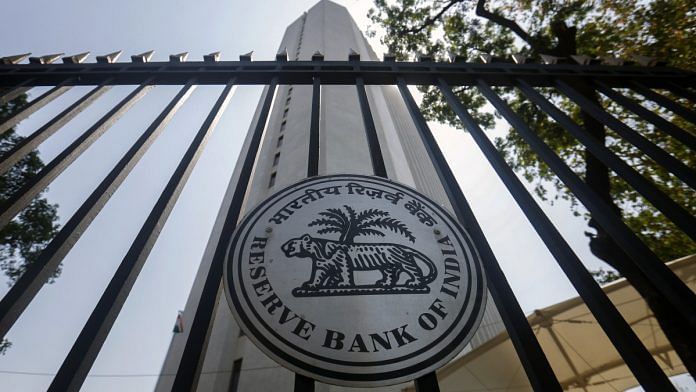India’s deepening credit crisis has taken a dangerous turn with Franklin Templeton’s local unit putting six of its debt mutual funds into suspended animation. Before fear guts the economy, the central bank needs to open its cash vaults.
At $4.1 billion, the amount of investor money that’s stuck may not seem systemically important. India’s $2.7 trillion economy has witnessed much larger financial failures in the recent past. But with the coronavirus lockdown decimating incomes and sentiment, leaving the hole unfilled may prove an error of judgment.
Mutual funds are sieves. Losses will be felt in the personal balance sheets of mom-and-pop investors. They will retreat into a shell of risk aversion if they’re told they may not be made whole even after a years-long wait.
That won’t do. Just the top 11 nonbank finance firms have $8.3 billion of debt maturing by September. It’s optimistic to think refinancing will come from banks when they won’t even take cheap funds from the central bank to chase credit risk.
So what needs to be done? The Reserve Bank of India will need to accept assets from debt funds to stop a contagion. Some of these are illiquid bilateral loans masquerading as securities. There’s no public market for them.
This isn’t new. I wrote in November 2018 about how Rana Kapoor, the controlling co-founder of Yes Bank Ltd., was tapping mutual funds to finance other family ventures.
Back then, Franklin Templeton’s unit holders probably had no idea their fund manager was sitting on practically the entire stock of zero-coupon debentures issued by Yes Capital Ltd., one of Kapoor family’s private investment vehicles. That was long before Yes, a major deposit-taking institution, became a basket case that was eventually rescued by a consortium led by government-controlled State Bank of India. The five funds that were involved in lending to Kapoor are among the six that have been suspended, suggesting that nothing really changed between then and now.
Franklin Templeton was the sole lender to 26 of 88 entities in its debt mutual funds, Livemint reports. I want to ask: Where were the regulators?
Shadow lenders have borrowed wholesale from debt mutual funds. This shifting of credit risk away from deposit-taking institutions took place in front of regulators’ eyes. Yet they didn’t push forward long-pending banking reforms to address the issue. The crumbling of nonbank lenders, especially those that had been rolling over debt owed by insolvent property developers, also happened in full public view. Once again the authorities did too little too late. By the time they put together a $3.5 billion last-mile fund to get stalled housing projects completed, the pandemic broke out.
With the disruption caused by the outbreak, the only way some bonds held by mutual funds will ever be repaid is if the government gives corporate borrowers subsidized credit and loan guarantees to tide them over. Many have already requested debt moratoriums from banks. Unless New Delhi offers a decisive backstop, the RBI will be reluctant to open up its balance sheet to entities it normally doesn’t deal with, including debt mutual funds.
But it must. The country’s shadow banking industry is in mortal danger. Borrowers from microlenders have lost livelihoods and capacity to repay. The pandemic shock isn’t something the private sector can withstand on its own.
The British economics writer Walter Bagehot famously said monetary authorities should fight panic by providing liquidity against collateral that’s acceptable in normal times. But there’s a possibility that things won’t normalize anytime soon, at least not for all borrowers. The longer the authorities go on flooding banks with liquidity while denying it to the nonbanks that actually need it, the weaker India’s recovery will be.
India’s banks got into trouble several years ago. As they retreated from financing credit to nurse their $200 billion-plus in bad loans, other institutions stepped in. The unexpected September 2018 bankruptcy of IL&FS Group, followed by the collapse of several other lenders, unearthed the rot in the shadow banking world, especially where it intersects with a lackluster property market. The near-complete halt to activity since Prime Minister Narendra Modi’s government announced a shutdown in March to arrest the spread of the disease is merely the final nail.
When the disease comes under control, there will have to be a reckoning. Mutual fund trustees must temper managers’ temptation to generate returns by loading up on illiquid securities. Rating firms should relearn what AAA means. Shadow banks have to restrict themselves to originating loans, and selling them on. All this is for later. For now, India’s central bank needs to mutter an apology to Bagehot, and just fill the hole left by Franklin Templeton. – Bloomberg
Also read: After Franklin’s funds freeze, a contagion risk is building in India’s credit market




Should Santosh Kamath, CIO of Templeton Debt Market Funds, go to jail?? With a Rs 30,000 Crores portfolio in doubt, he has not followed the basic rules of investment management. He has sought high returns rather than liquidity, a known error of judgement. He has invested crores of investor money in YES BANK, which everyone in the market knew was a fraud. SEBI also has to be questioned as to how Kamath could keep investing in illiquid debt securities. An investigation into financial fraud is required to see whether Kamath just made errors of judgement or criminal errors. But when a person potentially loses Rs 30,000 Crores, yes he may be an excellent candidate for jail, subject to a criminal investigation that must be conducted. You see, this crisis is going to blow up and may affect the entire country’s para banking financial services industry. Best wishes. Dr Sandeep Parmar
its very unfortunate that your priority sectors like MSME in need bank not giving them support & you helping companies who invest their money in max to share market your providing liquidity to companies without security & not providing liquidity to MSME without security while all said MSME are the backbon of economy